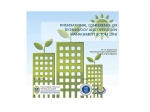FGD of IRCS ITB Explores Strategies for Publishing in Top Quartile Journals
By M. Naufal Hafizh, S.S.
Editor M. Naufal Hafizh, S.S.

BANDUNG, itb.ac.id — Institute for Research and Community Service (IRCS) Institut Teknologi Bandung (ITB) held a Focused Group Discussion (FGD) under the theme "Publication in Top Quartile Journals as an Early-Career Factor to Become a Prominent Lecturer and Researcher in the World ”, Thursday (7/3/2024). The event presented two speakers, Dr. Ir. Endra Gunawan, S.T., M.Sc., from the Faculty of Mining and Petroleum Engineering (FMPE) and Dr. Grandprix Thomryes Marth Kadja, M.Si., from the Faculty of Mathematics and Natural Sciences (FMNS).
Dr. Endra Gunawan discussed the quartile system and ranking of scientific journals as well as the role of researchers in producing these journals. He explained that one journal category will only have one quartile type which is decided from the last quartile type in the previous year. All journals, whether old or new publications have the same probability of entering each quartile category (Q1-Q4). New journals can immediately enter the Q1 category, as well as old journals can fall to the lower quartile.
"It doesn't necessarily mean that a journal with a long track record has the best quartile. So we must be able to identify our purpose for submitting, whether to a Q1 journal or a journal that has a long track record," he said.

He also emphasized that research is a long learning process. In this process, some researchers may find a starting point toward a more mature research career, for example as a lecturer. To get to that point, a researcher can start with something that is mastered and considered easy first. According to him, strengthening motivation in every research undertaken is also very important to maintain the enthusiasm and work productivity of a researcher.
“The most crucial thing is motivation. Once we lose motivation, it will be difficult (onward)” he said. Losing motivation would surely make it harder to achieve the goal as a researcher.
Meanwhile, Dr. Grandprix Thomryes Marth Kadja discussed several attitudes and principles that a researcher needs to develop. First, he strongly advised researchers to increase reading material from quality journals that fall into the Q1 category. According to him, quality publications cannot be produced without quality reading. Apart from that, researchers must have resilience in facing various failures that may be experienced throughout the journal publication process. Various errors and criticisms must be used as a basis for improving the quality of subsequent publications.

“In the process, there will definitely be blood, tears, and so on. Even before it is accepted, it might be rejected first. But as it says in the book Ikigai, if we fall 7 times, rise 8 times," he said.
He explained that now is a time for collaboration, not competition. This condition can be maximized as a venue for interdisciplinary collaboration with several fields of science at once. Interdisciplinary collaboration will increase the chances of producing quality publications due to the support of innovation and comprehensive analysis.
The final principle, also referring to Japanese philosophy, namely wabi-sabi, which means finding beauty in imperfection. If understood in the context of research, this philosophy teaches that no research is wasted even if the results are sometimes not as expected. In fact, these various studies are able to act as stepping stones and lessons for other researchers in developing similar research topics.
"(It is about) how we can gain new knowledge from the results of second-class research which may later be utilized by further research or other groups for development," he said.
Reporter: Hanifa Juliana (Regional and City Planning, 2020)
Translator: Ayesha Lativa Mafaza (Postharvest Technology, 2021)
Editor: Firza

.jpg)
.jpg)
.png)
.jpg)
.jpg)



